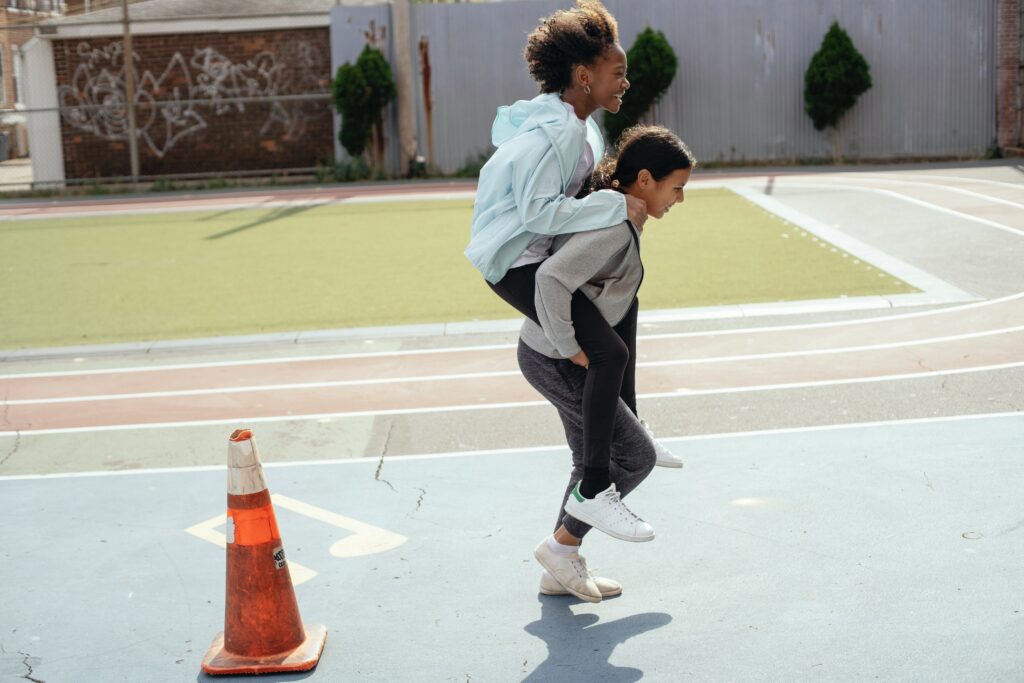Theory and practice in physical education

This module is based on didactics and methods of child-appropriate movement education. Levels of decision making and conditions in physical activity teaching are discussed and the decision-making fields of physical activity teaching, which represent the what-decisions, are introduced. How decisions represent the dimensions of teaching methods.
Suggested Number of ECTs
2
Total Workload- 52 hours
Lecture - 3 hours
Seminar work/Workshop/ Tutorial - 17 hours
Structured Independent Work - 32 hours
TEACHING METHODOLOGIES
Seminars (small group of max. 25 students) with lecture part and practical seminar part in the gym; Group work (preparation of lesson examples that will be
implemented by the students in the gym
FACILITIES: INDOORS AND/OR OUTDOOR
Seminar room for the first theoretical session
Sports hall (if possible with a regular PE class in a primary school) for the implementation of the planned
inclusive lessons
Dimensions Core
D1S2, D1C1
D2S1, D2S2, D2S3
D4S1
Dimensions Extended
D2K3, D2S6, D2S7
INDICATIVE CONTENT
Individualisation and differentiation
• Pupil-centred teaching
• Cooperative learning
• Pupil assessment
MODULE LEARNING OUTCOMES
- LO1: reflect on and apply different methodological concepts and approaches in movement teaching; and to be able to apply them;
- LO2: Plan and reflect on activities in the competence areas of the primary school curriculum in an age-appropriate, and appropriate to the situation and to reflect on them.
- Döhring, V., & Gissel, N. (2009). Sportunterricht planen und auswerten: Ein Praxisbuch für Lehrende und Studierende. Baltmannsweiler: Schneider-Verlag Hohengehren.
- Esslinger-Hinz, I., Wigbers, M., Giovannini, N., Hannig, J., Herbert, L., Jäkel, L., Klingmüller, C., Lange, B., Neubrech, N. & Schnepf-Rimsa, E. (2013). Der ausführliche Unterrichtsentwurf. Weinheim und Basel: Beltz.
3. Meyer, H. (2014). Leitfaden Unterrichtsvorbereitung. 7. Auflage Berlin: Cornelsen
| RESOURCE(Expansion of Indicative Content Content)Note: This module resource is based on a structure of 5 weeks x 4 hours |
| 1.Introduction to Year 2 Physical Education Theory-Based Lecture (4 hours)
|
2.Individualisation and differentiation Theory-Based Lecture (1 hour)
Movement-Based (3 hours) Differentiation using the following exemplary movement tasks:
| |
| 3.Pupil-centred teaching Theory-Based Lecture (1 hour)
Movement-Based (3 hours) Pupil-centred teaching using the following exemplary movement tasks:
| |
4.Cooperative learning Theory-Based Lecture (1 hour)
Movement-Based (3 hours) Cooperative learning using the following exemplary movement tasks:
| |
| 5. Pupil assessment Theory-Based Lecture (1 hour)
Movement-Based (3 hours) Pupil assessment using the following exemplary movement tasks:
|